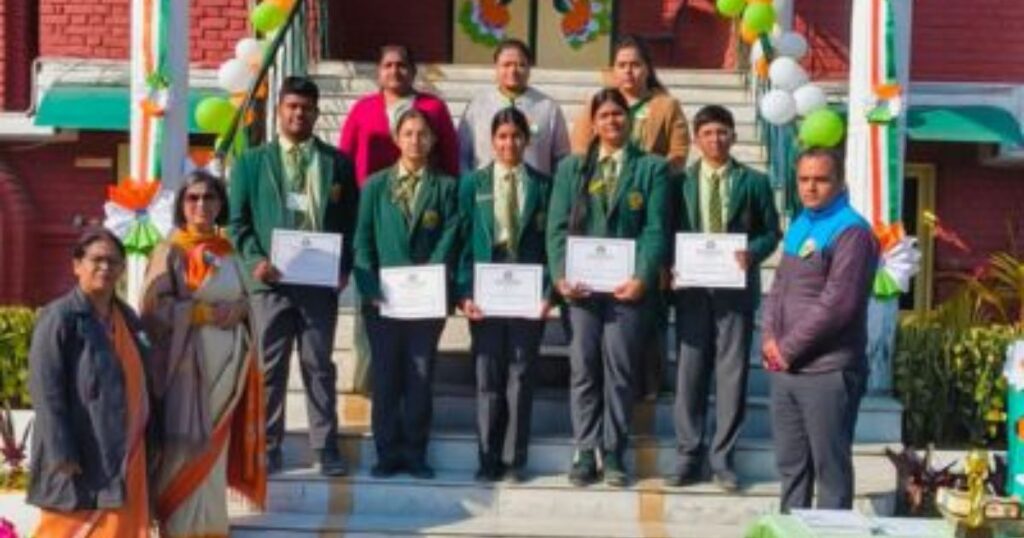
In today’s fast-changing world, the ability to think critically and approach problems creatively is just as important as mastering academic knowledge. Education is no longer about memorizing facts—it’s about learning to question, explore, and innovate. ICSE schools, with their well-balanced curriculum and skill-oriented approach, are leading the way in nurturing these essential qualities in students.
Table of Contents
ToggleOne school that exemplifies this philosophy is The Presidency International School, known as the top ICSE school in Dehradun, where academic excellence is combined with a strong focus on developing well-rounded, independent thinkers.
1. The ICSE Curriculum – Built for Holistic Development
The Council for the Indian School Certificate Examinations (CISCE) designs the ICSE curriculum to encourage more than just academic performance. It promotes analytical thinking, creativity, and a deep understanding of subjects. Students are exposed to a wide variety of subjects, including science, mathematics, humanities, and arts, giving them a well-rounded education.
Unlike rote-based systems, ICSE encourages students to understand concepts, apply knowledge to real-life situations, and express their perspectives clearly. This approach naturally fosters critical thinking, as students are guided to analyze problems, explore multiple solutions, and justify their reasoning.
2. Teaching Beyond the Textbook
In ICSE schools, learning goes beyond the classroom walls and textbooks. Teachers act as facilitators rather than just information providers. They encourage discussion, debates, and project-based learning, allowing students to interact with knowledge instead of passively receiving it.
For example, instead of simply teaching historical events, students might role-play historical figures, research different perspectives, and evaluate the impact of decisions made in the past. This not only deepens their understanding but also sparks creativity in how they present their findings.
At The Presidency International School, this method is applied across all subjects, making it a hub for intellectual curiosity and innovation.
3. Integration of Arts and Creativity
Creativity flourishes when students are given the opportunity to express themselves through various mediums. ICSE schools are well-known for giving equal importance to arts, music, drama, and literature alongside academics.
These subjects are not treated as “extras” but as an integral part of education. They encourage students to think imaginatively, develop original ideas, and use creative problem-solving techniques in all areas of life.
At The Presidency International School, students participate in annual art exhibitions, theater performances, and music recitals, where they learn that creativity is not confined to one subject—it’s a mindset that can be applied anywhere.
4. Encouraging Inquiry and Questioning
One of the most powerful ways ICSE schools develop critical thinking is by encouraging students to ask “why” and “how” rather than just “what.” Teachers welcome questions and guide students to seek answers through research, experiments, and logical reasoning.
Science labs, computer rooms, and libraries become spaces for exploration, where students learn to test ideas, analyze outcomes, and refine their understanding. This habit of questioning ensures they grow into adults who can approach challenges with a thoughtful, informed perspective.
5. Project-Based and Experiential Learning
ICSE schools often integrate project-based learning, where students work on long-term assignments that require planning, creativity, teamwork, and problem-solving.
For example:
- In environmental studies, students might create sustainable garden models.
- In literature, they could design a modern adaptation of a classic play.
- In science, they might work on innovative energy-saving devices.
Such projects demand research, collaboration, and presentation skills—all of which strengthen both critical and creative thinking.
The Presidency International School, widely regarded as the top ICSE school in Dehradun, consistently introduces projects that challenge students to apply classroom concepts to real-life scenarios.
6. Exposure to Diverse Perspectives
Critical thinking thrives in an environment where students are exposed to multiple viewpoints. ICSE schools place a strong emphasis on open discussions, debates, and cultural exchange programs that help students appreciate diversity.
By engaging with peers from different backgrounds and listening to varied opinions, students learn to assess information objectively and form well-reasoned conclusions. This also helps in developing empathy—an essential trait for creative problem-solvers.
7. Technology as a Creative Tool
Modern ICSE schools understand that technology is not just a tool for information gathering—it’s a platform for innovation. Digital learning platforms, coding clubs, and multimedia projects give students the opportunity to combine technical skills with imagination.
From designing mobile apps to creating digital art, students are encouraged to use technology as a medium to bring their ideas to life. At The Presidency International School, technology is seamlessly integrated into the curriculum to encourage both logical reasoning and imaginative thinking.
8. Assessment Methods that Reward Thinking
One of the unique strengths of the ICSE board is its assessment pattern, which focuses on application-based questions rather than simple memorization. Students are evaluated on their ability to analyze, interpret, and create—skills that are vital for both critical thinking and creativity.
Assignments, internal assessments, and practical exams ensure that learning is continuous and meaningful, rather than confined to a single final exam.
9. Preparing Students for the Future
The combination of critical thinking and creativity is exactly what the 21st-century workplace demands. Problem-solving, innovation, adaptability, and communication skills are valued more than ever before.
By the time students graduate from an ICSE school, they are well-prepared to take on challenges in higher education and their careers. Their ability to think deeply and approach situations creatively gives them a competitive edge in any field they choose.
Conclusion
The true value of education lies not just in what a student knows, but in how they think and how they can apply their knowledge to make a difference. ICSE schools are uniquely positioned to nurture these abilities through their comprehensive curriculum, interactive teaching methods, and emphasis on arts, inquiry, and innovation.
The Presidency International School, celebrated as the top ICSE school in Dehradun, is a shining example of how education can empower young minds to think critically and creatively. By fostering curiosity, encouraging self-expression, and challenging students to go beyond the obvious, the school prepares them not just for exams, but for life itself.
